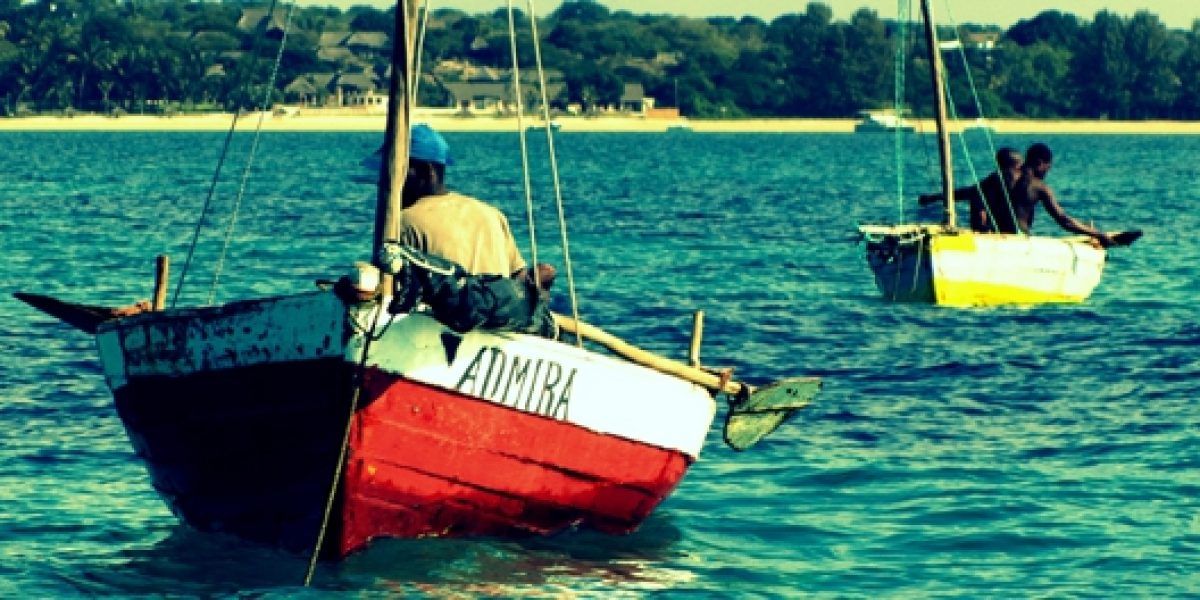Moreover, the fisheries sector is only one component of the ocean economy; we must also consider shipping, coastal tourism, maritime oil and gas and a host of other industries and ecosystem services. A recent report commissioned by the World Wildlife Fund has added to our understanding of the importance of the world’s oceans. The report estimates the value of ocean assets at $24 trillion, delivering annual goods and services of $2.5 trillion.
These are big numbers, but as the world commemorates World Oceans Day on 9 June this year, we must also recognise that behind these numbers are a complex set of governance challenges that can significantly undermine the potential of the maritime domain to contribute to human development and the integrity of ecosystems. Climate change is already influencing the natural range of fish species, while ocean acidification, sea level rise and increasing tropical storms are likely to significantly shape the economies of coastal and island states. These developments, combined with the pressures of urbanisation and coastal development, will require a stronger focus on the effective management of coastal zones.
Integrated coastal management (ICM) has been developed over the past few decades as a tool to address multiple-use conflicts, pre-empt and plan for new uses, and protect vulnerable ecosystems and marine biodiversity. ICM responds directly to the failures of past sectorial approaches to marine fisheries, coastal hazards, mining and land use, and provides policy direction to define the priorities for holistic coastal development. ICM uses a variety of policy and planning instruments to deepen integration and manage the coastal zone more effectively. These tools have had varied success since they were first adopted in the 1970s. In South Africa, an ICM Act was adopted in 2009 to manage the coastal and estuarine environments more holistically and to further entrench the principles of co-operative governance.
Under the broader rubric of the blue economy, the maritime environment and associated governance challenges have become a central concern for African policymakers in recent years. The African Union Commission (AUC) Chairperson, Nkosazana Dlamini-Zuma, has referred to the blue economy as the maritime dimension of the African Renaissance, while the African Union’s Agenda 2063 envisages Africa’s blue economy as a major contributor to continental transformation and growth. At the centre of this shift is the 2050 Africa’s Integrated Maritime Strategy (2050 AIMS), a comprehensive plan that aims to ‘foster more wealth creation from Africa’s oceans, seas and inland water ways by developing a thriving maritime economy and realising the full potential of sea-based activities in an environmentally sustainable manner’.
At the national and sub-regional levels African states have also been formulating strategies aimed at unlocking the potential of their maritime domains. South Africa’s Operation Phakisa, for example, targets significant growth in four key maritime sectors – aquaculture; marine transport and manufacturing; offshore oil and gas; and marine protection services and ocean governance. As Africa’s regional and national maritime ambitions develop, there is a growing need to respond effectively to the maritime strategies of other global powers. For example, China, India and Indonesia have developed strategies centred on the Indian Ocean region, which portends significant implications for Africa.
Though various components of the Blue Economy all share the maritime domain in common, they have historically not been effectively coordinated. Integrated maritime strategies will test the ability of government departments, industry associations, multilateral agencies, civil society organisations and a host of other stakeholders to plan effectively, coordinate efforts, and respond collectively to conflicting demands and tensions that may arise. In addition to the tools and mechanisms provided through integrated coastal zone management, there will be a greater demand for marine spatial planning and, regionally, a cooperative approach to managing large marine ecosystems. Stakeholders must also ensure that the discourse on ‘blue growth’ incorporates concerns on social justice and environmental sustainability. For example, efforts to develop the fisheries sector must reflect the critical role that small-scale fisheries play in coastal livelihoods and food security. Coastal developments and urbanisation can provide important economic opportunities for coastal communities, but without effective environmental monitoring and controls, harmful practices such as illegal sand mining in estuaries can have far-reaching impacts on marine ecosystems.
SAIIA has engaged in a variety of policy debates on the Blue Economy through forums convened by the Indian Ocean Rim Association, the United Nations Economic Commission for Africa, the Benguela Current Commissions and other stakeholders. SAIIA’s research publications seek to contribute to the policy debate on the development of a vibrant, inclusive and sustainable African Blue Economy.








